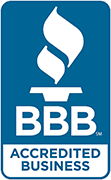Proper tax planning is a year-round proposition, not last minute at the tax return season. You cannot afford to wait until taxes are due to start planning them and assessing your tax liability.
Knowing which factors can raise your taxes is one of the best ways to keep your hard earned money in your pocket. These five factors can unexpectedly raise your tax liability at the end of the year.
Note: If you owe back taxes, our firm can help negotiate with the IRS and potentially settle your tax debt. Call us today. Our tax resolution specialists can navigate the IRS maze so that you have nothing to worry about. Contact – Ramon Ortega CPA.
#1 – Cashing in Your Retirement Plan
There are many reasons not to cash in your retirement plan early, but the tax penalty is one of the biggest ones. If you take the proceeds from your 401(k) plan in cash instead of rolling it over into an IRA, you will have to pay taxes on the money you withdraw. Even worse, you will be subject to a 10 percent penalty if you haven’t reached 59 ½ age or become permanently unable to work due to disability. By the time you are done, you could lose up to half your hard-earned retirement plan only in taxes and penalties.
#2 – Working as a Self Employed, Freelancer or LLC Single Member
Working for yourself is great, but it can trigger a tax nightmare. Self-employed, freelancers and LLC Single Members are subject to the self-employment tax, which represents the combined employer and employee share of the Medicare and Social Security tax in the amount of 15.3% of the Schedule C net income. That tax hit can be substantial, especially if you plan to fail for it and set money aside.
#3 – Failing to Take Timely Your RMD
You cannot keep retirement funds in your account indefinitely. You are required to start pulling money from your IRA and workplace retirement plans when you turn 70. If you fail to make that required minimum distribution (RMD), you could face a hefty tax penalty. The penalty for failing to take the RMD can be substantial.
#4 – Skipping Your IRA Contribution
If you are used to making an annual IRA contribution, skipping that contribution could cost you money. Before you skip your IRA contribution, take the time to run the numbers and see how the decision will affect your tax bill.
#5 – Paying Off the Mortgage
Paying off the house can be very freeing, but in some situations it can also raise your taxes. Mortgage interest is deductible if you itemize your deductions, and losing that deduction could leave you owing more to the IRS. That may not be a reason to keep a mortgage, but it can be an important consideration.
Owe Back Taxes?
If you know you’ll have outstanding tax debt and owe more than $10k to the IRS or state but can’t pay in full, contact our firm today. We help people find tax relief and sometimes settle their tax debt for a fraction of what’s owed www.wesolveyourirsdebt.com.




